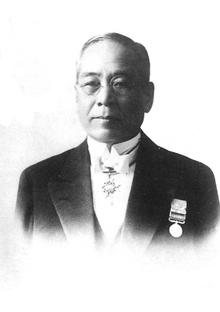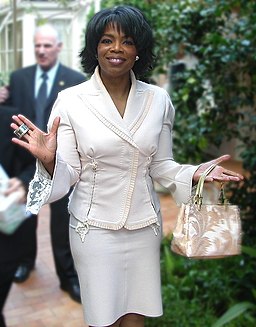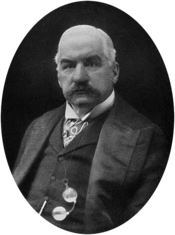As the summer beckons, focusing on the daily grind may become a challenge. To offer a bit of inspiration, I created a list individuals that I believe to be “super entrepreneurs.” That is, these are not just people who have amassed wealth or who ran a successful business, they left an indelible imprint on the world that has altered the way we live, work, think and play. These people are some of the biggest business movers and shakers of the century.
All of these people lived and worked in the 20th century and beyond. Though a few of them may have reached their prime a before the start of the 1900’s, I still consider them “contemporaries.” So without further a due, here’s my list. You may be surprised how many of the brand names you recognize even if you don’t know the people behind them.
1. Andrew Carnegie (1835 –1919)
From his simple beginnings as the son of a poor Scottish weaver, Carnegie went on to build a formidable steel empire. His mills literally built up much of the infrastructure of post-Civil War America. His success was largely due to his focus on increased efficiency, cost reduction, and notably his quick adoption of the Bessemer process for refining steel.
2. John Pierpont Morgan (1837–1913)

The infamous American financier and banker was a dominant force in corporate finance and industrial consolidation. Though many were quick to criticize his powerful influence and control, many credit him with skillfully directing the banking coalition that stopped the Panic of 1907. He also conducted several high profile mergers during his time including the merger of Edison General Electric and Thomson-Houston Electric Company to form General Electric as well as the series of mergers that led to the formation of the United States Steel Corporation.
3. John D. Rockefeller (1839–1937)
Though he effectively retired from the business world in 1896, Rockefeller’s contributions to modern business and industry are present to this day. The oil magnant’s key to success was not just his strategic purchases of American oil refineries, but more his self-sustaining business model. Vertical integration factored heavily. His company, Standard Oil, even produced its own oil barrels.
4. Thomas Edison (1847-1931)
The Wizard of Menlo Park was perhaps one of the most prolific innovators of all time. From his lab in New Jersey, he invented and registered no less than 1,093 patents- many for well-know, life changing products such as the incandescent light bulb, the phonograph (a machine that recorded sound), and the kinetoscope which he used to record to one of the first movies ever.
5. Milton Hershey (1857-1945)
Today, the name Hershey has become synonymous with chocolate- and with good reason. In 1905, Hershey built the world’s largest chocolate factory in the Pennsylvania township that now bears his name. Armed with a chocolate recipe he developed himself, he used the principles and techniques of mass production to create a popular and affordable consumer product.

6. W.K. Kellogg (1860-1951)
Since the founding of the Battle Creek Toasted Cornflake Company (later to become Kellogg Company), Kellogg brought breakfast cereal to our tables, thus providing a healthier alternative to the eggs and meat typically consumed for the first meal of the day. Perhaps lesser known was his knack for marketing. Realizing that kids are influential in buying decisions, Kellogg executed several successful marketing strategies directly aimed at children. These included: sponsoring children’s radio programs, sugar-coating the cereal, creating cartoon characters, such as Tony the Tiger and Tucan Sam, and the Kellogg company was the first to offer a prize inside the box.
7. Henry Ford (1863-1947)
Today, Ford is perhaps known as much for his system of mass production as with the cars and company that were his name sake. Ford was a key force in making America a nation of car owners and drivers. On his assembly lines, he produced inexpensive cars for the masses, and even paid his workers enough to be able to afford them themselves. Between 1908 and 1927, Ford sold approximately 15 million Model Ts.
8. Richard Sears (1863-1914); Alvah Roebuck (1864-1948)
What started as a mail-order catalog business in 1893, eventually evolved into a retail giant. Sears, Roebuck and Co. built department stores throughout the country and was the largest retailer in the U.S. in the mid-20th century. Though, Sears eventually lost ground to other retailers, such as Walmart, it’s stores remain fixtures throughout America.
9. Madam C.J. Walker (1867-1919)

Rising up from a life of hardship, Madam C.J. Walker started with a homemade scalp lotion to stop hair loss and turned it into a successful line of hair and beauty products targeted at black women- an unusual accomplishment given that women were still struggling for voting rights and segregation was legal. She was no stranger to politics either, using her substantial fame and fortune to support numerous civil rights causes.
10. Amadeo P. Giannini (1870-1949)
The Bank of America… Just hearing that name may make many current and former customers upset. But, the big bad bank actually got a benign, populist start. The bank’s founder Amadeo Giannini, wanted to create a financial institution that focused the needs of working-class families, irregardless of their economic standing- a pioneering move at a time when personal banking was mostly reserved for business owners and the wealthy.
The Bank of Italy as it was called then, introduced the concept of branch banking, home mortgage loans, automotive loans, and various credit products. After the devastation caused by the 1906 San Francisco earthquake, Giannini, famously offered credit “on a face and a signature” to help the city rebuild.
11. Thomas Watson Sr. (1874-1956) & Thomas Watson Jr. ( 1914-1993)
IBM, the big blue chip that played a pivotal role in bringing PC’s to consumers, got it’s start as the Computing-Tabulating-Recording Co. (later it become International Business Machines) in 1914, with Thomas Watson Sr. at the helm. Over the next four decades, Watson built a model for the modern global corporation, with a strong emphasis on customer loyalty, dedicated, happy employees, and product value.
When his son, Watson Jr., took over, he recognized the potential that lay in the personal computing market and he steered the company towards the development and production of PC’s.
12. Henry John Kaiser (1882 –1967)
was an American industrialist who became known as the father of modern American shipbuilding. He established the Kaiser Shipyard which built Liberty ships during World War II, after which he formed Kaiser Aluminum and Kaiser Steel. Kaiser organized Kaiser Permanente health care for his workers and their families. He led Kaiser-Frazer followed by Kaiser Motors, automobile companies known for the safety of their designs. Kaiser was involved in large construction projects such as civic centers and dams, and invested in real estate. With his acquired wealth, he initiated the Kaiser Family Foundation, a charitable organization.
13. Charles Merrill (1885-1956)
Merrill is credited with bringing the stock market to the masses. In his time, investing in the stock market was primarily the domain of the wealthy. After founding Merrill Lynch in 1939, he taught middle-class Americans how to use the stock market to fund retirement, prepare for their kids’ education, or have an emergency backup fund. Merrill also targeted women. He held investment seminars throughout the country open to couples, and he even provided childcare.
14. Sakichi Toyoda (1867-1930)

Known as the “King of Japanese Inventors” and often referred to as the father of the Japanese industrial revolution, Sakichi Toyoda was the founder of Toyota Industries Co., Ltd, a producer of weaving devices (which later became Toyota Motor Corporation under the direction of his son Kiishiro).
Toyoda is most famous as the inventor of the automatic power loom and is credited with developing the foundations of the Just-In-Time Production Process and the Toyota Production System which is based on the use of lean methodologies to solve problems, improve quality, and reduce costs in the production and delivery of goods.
15. Conrad Hilton Sr. (1887-1979)
Conrad Hilton rose from his job as an innkeeper in small town Texas, to become a successful hotelier who founded the first nation-wide hotel chain in 1943 and eventually expanded the brand globally a few years later. Currently, Hilton Hotels and Resorts, as the company is called today, operates over 540 hotel branches in 76 countries across six continents.
16. Ray Kroc (1902-1984)
Kroc is the man behind the ubiquitous McDonald’s Fast Food Chain. It’s spectacular growth can largely be attributed to Kroc’s unswerving focus on the long-term development of the company and its franchisees and on his dedication to maintaining a high standard of “quality, service, cleanliness, and value” so that the customer experience would be uniform across locations. Currently, the company has managed to place its trademark Golden Arches in over 120 countries, making it the largest fast food chain in the world. And to think, it all started in 1940 with a small burger joint located in San Bernadino, California.
17. Forrest Mars, Sr. (1904 – 1999)
Forrest Mars was the innovative force behind the Mars candy empire. He is responsible for inventing M&M’s as well as the Mars Bar after spending some time studying European candy-makers. He also created the Uncle Ben’s rice line along side a gourmet food business.
18. Sōichirō Honda (1906-1991)
Sōichirō Honda was a Japanese engineer and founder of the billion-dollar, multinational Honda Motor Co., Ltd. After spending a few years working in a small auto-repair shop and eventually opening his own auto-repair business, Honda began producing piston rings for small engines in 1937. Eleven years later, he founded the Honda Motor Company where he designed and manufactured motorcycles. Thanks to good engineering and strategic marketing tactics, Honda motorcycles quickly became the best-selling motorcycles in the world, even out-selling Triumph and Harley-Davidson in their respective home markets.
19. Estée Lauder (1907-2004)

Estée Lauder started her namesake cosmetics company after spending time watching her uncle concoct creams, lotions, and perfumes for his business. Estee concocted a few of her own, eventually founding her business in 1946.
Much of Estee Lauder’s legacy centers on her way of doing business. Aside from her relentless desire to sell only quality products, she was a virtual sales genius. Lauder is credited with pioneering the practice of offering free samples of her products, usually at high-end stores such as Saks Fifth Ave, so that the products could sell themselves. She was also amazingly adept at zeroing in on a customer’s needs by paying attention and also by believing in the value of her products.
20. Masaru Ibuka (1908 – 1997); Akio Morita (1921-1999)
Masaru Ibuka and Akio Morita were Japanese businessmen and the innovative co-founders behind the Sony Corporation. In 1946, Morita and Ibuka founded the Tokyo Tsushin Kogyo Kabushiki Kaisha (Tokyo Telecommunications Engineering Corporation), which later became the Sony Corporation.
From it’s inception, the company has developed and produced a slew of innovative electronics including: magnetic recording tape, the first fully-transistorized pocket-sized radio, the first transistor television in the world, the first Betamax home video recorder (a year before the VHS system was introduced to the market), the world’s first portable music player (the Walkman), as well as the Discman series.
21. Bill Bowerman (1911-1999); Phil Knight (1938-present)
Famous Olympic and university track coach, Bill Bowerman and former runner, Phil Knight are credited with founding Nike, Inc. arguably the most well-known sporting goods company and brand name in the world. The company was founded in January 1964 as Blue Ribbon Sports and later became Nike, Inc. in 1978. It is the world’s leading supplier of athletic shoes and apparel and a major manufacturer of sporting equipment.
Nike is a case study in the power of strategic marketing. Nike sponsors many high profile athletes and sports teams throughout the world and has made it’s Swoosh Logo and the “Just do it” by-line as recognizable as Coca-Cola’s flagship drink.
22. Sam Walton (1918-1992)
Whether or not you’re a fan of Walmart, it’s hard not to admire the retail giant’s ability to benefit from enormous economies of scale, and the opportunistic business decisions that led to growth unrivaled by its competitors. Sam Walton, the man behind it all, recognized the need for low-cost retail stores, particularly in rural American communities. He was even known to have flown his small plane over rural areas in the South and Midwest to identify potential markets with low competition.
23. Gordon Moore (1929-present); Bob Noyce (1927-1990)
Gordon Moore and Bob Noyce are the co-founders of the Intel Corporation, the global technology company and the world’s largest semiconductor chip maker. Intel was founded on July 18, 1968, as Integrated Electronics Corporation. The company’s rise to tech stardom came with its development and production of the x86 series of microprocessors (the processors found in most personal computers today) as well as the ubiquitous “Intel Inside” marketing campaign. Many credit Intel’s success to its advanced chip design coupled with cutting-edge manufacturing processes.
24. Berry Gordy Jr. (1929-present)

Berry Gordy Jr. was the driving force behind the Detroit record label, Motown Records as well as several subsidiaries. At its height, Motown featured an impressive group of well-known artists, such as the Temptations, Dianna Ross, Marvin Gay, and Stevie Wonder who regularly produced chart-toping hits. But, Gordy’s biggest contribution to the music industry was his role in the racial integration of music. The “Motown Sound” became universally popular, deftly reaching across a considerable racial divide.
25. Warren Buffett (1930-present)
Warren Buffet, aka the “Oracle of Omaha,” is an iconic American investor and influential economic adviser as well as the primary shareholder, chairman and CEO of Berkshire Hathaway. He is also a regular on the world’s wealthiest people list. But don’t think that all this fame and fortune has gone to his head; Buffet is known for his personal frugality: he still lives in the same house in the central Dundee neighborhood of Omaha that he bought in 1958 for $31,500.
26. Earl Graves (1935- present)
While sitting on the Small Business Association’s (SBA) advisory board, Earl Graves put out an annual newsletter that covered economic and urban affairs and trends affecting the black business person. In 1970, the newsletter eventually evolved into the Black Enterprise magazine. His publication, one arm of his media company, Earl G. Graves, Ltd., has enjoyed enormous success and has a readership of 3.7 million and a paid circulation of over half a million.
27. Charles Schwab (1937-present)
Charles Schwab is credited with making investing more accessible to consumers and is considered a pioneer in the discount brokerage industry. His company, the Charles Schwab Corp, lowered trade commissions, offered consumers the ability to pick and choose their investments more freely, and introduced online investing.
28. Ralf Lauren (1939- present)
Ralph Lauren may be as much associated with the horse-riding polo player logo than the preppy, tailored look of his clothing line. Today, the Ralph Lauren brand graces more than just clothing: it can be found on fragrances, accessories, beauty products, and even housewares. Many credit founder Ralph Lauren with helping to develop (and define) the men’s fashion industry- and to think, it all started with a tie shop in 1967.
29. Muhammad Yunus (1940- present)

Muhammad Yunus is the founder of Grameen Bank, “The Bank for the Poor,” a global financial institution that specializes in lending small amounts of money at a low interest to help poor entrepreneurs start and run their companies. Since it’s inception, Yunnus’ program has been very successful with a default rate of only 2% and it even netted him a Nobel Peace Prize in 2006.
30. George Lucas (1944-present)
George Lucas, the writer and director behind the lucrative Star Wars movie series, recognized the potential future value of his original 1977 Star Wars movie beyond the box office. Instead of getting paid the standard director’s salary, he opted for a percentage of that year’s ticket sales and obtained both the merchandising and sequel rights to the movie. Since the 1977 release, Star Wars memorabilia has generated some $13.5 billion in sales.
The movie itself is also considered groundbreaking for its time for its use of special effects (Lucas even formed his own company to get the effects he wanted) as well as unconventional editing techniques.
31. Robert L. Johnson (1946-present)
Robert Johnson has accomplished several “firsts” in his business career. In 1980, he founded the Black Entertainment Television (BET) network, the first cable television network for African Americans. In 1991, BET became the first African-American owned company to be listed on the New York Stock Exchange. Ten years later, Johnson became the first African American billionaire, and the first black person to be listed on the Forbes list of the world’s richest people.
32. Oprah Winfrey (1954- present)

Oprah Winfrey is arguably one of the most influential entrepreneurs in the realm of pop culture to appear in the past few decades. Via her popular talk show and eventually other media mediums, she is credited with bringing topics that were once considered taboo into mainstream media and thought.
Her endorsement can almost guarantee success (countless best selling books got their start on The Oprah Winfrey Show), while a chance comment can cause an instant plummet in sales (consider what happened to the beef markets after a side comment she made about the mad cow disease epidemic.)
Life wasn’t always so great though. Winfrey broke from a life of hardship including poverty and even rape to become the cultural icon she is today.
33. Steve Jobs (1955- present)
Whether or not you’re a part of the cult following of all things Apple, it’s hard to deny the impact Steve Jobs has had on personal computing, software, and mobile communications. His signature products, including the Mac computer and the Mac OS series, the iPod, iPhone and recently, the iPad have all literally taken the tech world by storm and have set the standard by which other big tech companies must follow.
34. Bill Gates (1955-present)
Many are familiar with the fact that Bill Gates founded Microsoft as a student in Harvard. He quickly dropped out to build up the software empire synonymous with his name. Microsoft’s rise came quickly after its strategic partnership with IBM; for over a decade, the company and its products dominated the industry virtually unchallenged. Today, he is one of the richest people in the world with an estimated worth of $56 billion.
35. Richard Branson (1960- present)

The playboy of the entrepreneurial world, Sir Richard Branson is the founder of the Virgin Group, a conglomeration of over 400 companies, and it all started with a mail-order record shop he opened in 1970. Many of his famous stunts, such as his attempted balloon ride around the world, as well as two of his recent ventures: Virgin Galactic (space tourism) and Virgin Oceanic (tours to the deep ocean), depict the message is that anything is possible.
36. Jeff Bezos (1964-present)
After founding Amazon.com in 1994, Bezos built up a formidable online marketplace for selling books and in the process changed the way the Internet was used to purchase goods or services. Many common practices in online sales were developed and perfected by Amazon.com- most notably: product recommendations, easy check out, and a solid system for incorporating customer reviews. Today, Amazon.com, sells a wide variety of products, including music, clothing, and jewelry.
37. Michael Dell (1965-present)
Michael Dell, started PC Limited while attending the University of Texas, Austin. With $1,000 in start-up capital, he later dropped out and began building Dell Computers. Dell’s greatness is centered on his business model. By integrating the just-in-time production techniques developed by Toyota with a direct-to-customer sales system, he built one lean, mean PC sales machine.
38. Pierre Omidyar (1967-present)
Ebay, the well-known online marketplace and auction, got its start when founder Omidyar developed an online system to trade collectible PEZ dispensers. The idea caught on like wildfire. Today, eBay pulls in about $9 billion in yearly profits, with operations in 30 countries, and offering products in 35 different categories.
With it’s introduction, eBay altered the dynamic of the online buy-sell transaction. Suddenly, there was a way to market that which had previously been unmarketable, and it empowered both small companies and individuals to enter transactions that would have previously been unthinkable.
39. Larry Page (1973-present); Sergey Brin (1973-present)
Google founders, Sergey Brin and Larry Page, developed the idea for a more powerful and effective search engine while working together as PhD students on the Stanford Digital Library Project. Google’s original domain name was actually “google.stanford.edu.” Today, Google is a massive conglomerate of ubiquitous Internet-based products and services. It is also employee-friendly and focused on fostering an environment of creativity. The company has become a regular in Fortune magazine’s list of the best places to work.




















